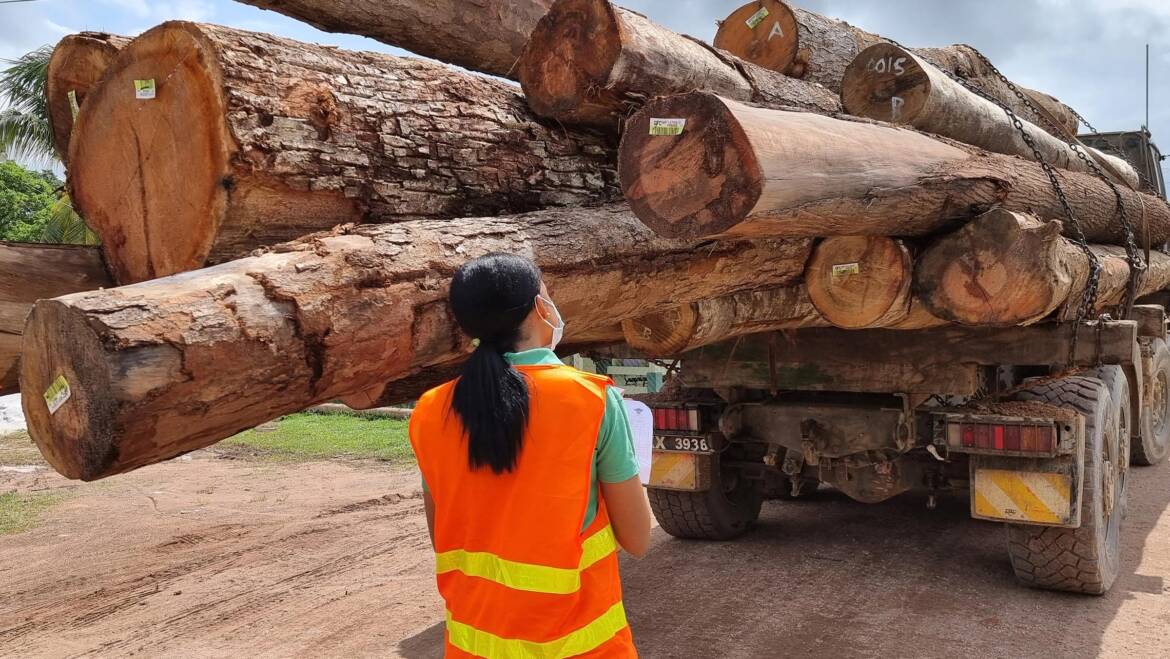Sustainably Sourced Greenheart, Purpleheart, and Guyana’s Lesser-Known Tropical Timbers: Setting a New Standard in Responsible Procurement
In an era where environmental stewardship is more than a buzzword, the timber industry stands at a pivotal crossroads. As professionals, we’re tasked not only with sourcing high-performance materials but also ensuring our choices support a sustainable future. Guyana’s forests, home to renowned species like Greenheart and Purpleheart, as well as a wealth of lesser-known timbers, offer a compelling case study in how responsible forestry can drive both industry innovation and environmental preservation.
Greenheart: The Gold Standard for Sustainable Strength
Greenheart (Chlorocardium rodiei), native to Guyana’s rainforests, has long been the engineer’s timber of choice for demanding applications, from marine construction to railway infrastructure. What sets Guyanese Greenheart apart isn’t just its legendary durability (with a lifespan exceeding 120 years in harsh environments) but its sustainability credentials.
Guyana’s forestry sector operates under strict national codes, recently endorsed by both PEFC and FSC, ensuring that every log is traceable and harvested using reduced-impact techniques. These practices are enshrined in law and independently verified, resulting in minimal disturbance to biodiversity and robust regeneration of the forest canopy. Scientific studies show that Greenheart logging in Guyana has “almost non-detectable impact to biodiversity,” making it a model for sustainable tropical forestry.
Beyond its environmental benefits, Greenheart also plays a critical role in carbon sequestration, storing over one ton of carbon per cubic metre in finished products, making it a true ally in the fight against climate change.
Purpleheart: Balancing Demand and Sustainability
Purpleheart is another prized Guyanese hardwood, celebrated for its striking colour and resilience. However, its popularity brings challenges: over-harvesting can threaten forest balance. The Guyana Forestry Commission (GFC) mandates that Purpleheart harvesting should not exceed 0.5–1.0% of total forest volume to maintain ecological integrity.
This approach underscores a key lesson for industry professionals: Sustainable procurement isn’t just about certification, but about understanding species-specific guidelines and supporting suppliers who respect them. By choosing responsibly sourced Purpleheart, we help preserve the “whole cake”-the rich biodiversity of Guyana’s forests-for future generations.
Unlocking the Potential of Lesser-Known Tropical Timbers
Guyana’s forests are home to over 1,000 tree species, many of which remain underutilised. The government, through initiatives like the Forest Products Development and Marketing Council (FPDMC), is actively promoting lesser-used species (LUS) to reduce pressure on traditional favourites and diversify the market.
These lesser-known timbers-such as Snakewood (Brosimum guianense)-offer unique aesthetics, exceptional durability, and technical qualities suitable for decking, flooring, and high-end applications. By embracing these alternatives, architects, designers, and specifiers can deliver innovative solutions while supporting the long-term health of Guyana’s forests.
Why This Matters for Industry Leaders
Sustainably sourced tropical timber from Guyana isn’t just an ethical choice-it’s a strategic one. Here’s why:
- Reputation and Compliance: Certifications like FSC and PEFC provide assurance to clients and stakeholders, supporting ESG goals and regulatory compliance.
- Performance and Longevity: Species like Greenheart and Snakewood deliver unmatched durability, reducing lifecycle costs and environmental impact.
- Innovation and Differentiation: Specifying lesser-known species positions your projects at the forefront of design and sustainability trends.
- Supporting Local Communities: Responsible sourcing creates jobs and adds value in rural Guyanese communities, fostering economic resilience.
Conclusion: A Call to Action for the LinkedIn Community
As professionals, our choices shape the future of both our industry and the world’s forests. By championing sustainably sourced Greenheart, Purpleheart, and lesser-known tropical timbers from Guyana, we set a new benchmark for responsible procurement and environmental leadership.





